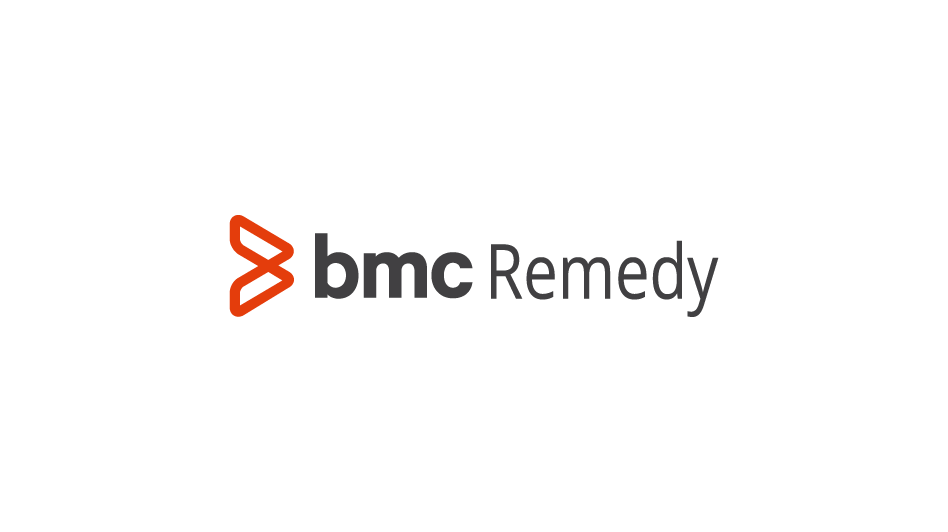In the ever-evolving world of IT service management (ITSM) and enterprise service management (ESM), ServiceNow has long been a dominant player. However, as businesses grow and evolve, their needs change too. This often leads to a quest for alternatives that better align with their unique requirements. In this comprehensive guide, we will delve into various ServiceNow alternatives, each offering its own set of features, limitations, and advantages.
Understanding ServiceNow
Before we embark on our journey to explore ServiceNow alternatives, let’s first understand what ServiceNow is and why it has gained such prominence in the ITSM landscape.
Features of ServiceNow

ServiceNow is renowned for its feature-rich platform, encompassing a wide array of ITSM and ESM functionalities. Some of its key features include:
1. Incident Management
ServiceNow excels in streamlining incident management processes. It allows organizations to efficiently log, track, and resolve incidents, ensuring minimal disruption to business operations.
Incident management is the cornerstone of any ITSM solution. ServiceNow’s robust capabilities in this area ensure that every issue or problem is promptly addressed, minimizing downtime and ensuring the smooth operation of critical business functions.
2. Change Management
With robust change management capabilities, ServiceNow empowers organizations to implement changes smoothly while minimizing risks and disruptions.
Change management is crucial in today’s fast-paced business environment. ServiceNow’s comprehensive approach to change management ensures that alterations to IT infrastructure are well-planned and executed, reducing the chances of unforeseen issues.
3. Asset Management
ServiceNow provides comprehensive asset management solutions, enabling organizations to manage their IT assets throughout their lifecycle effectively.
Efficient asset management is essential for cost control and regulatory compliance. ServiceNow’s asset management features help organizations track and optimize their assets, ensuring they get the most value from their investments.
4. Service Catalog
The service catalog feature allows users to request IT services easily, improving service delivery and user satisfaction.
A well-structured service catalog enhances user experience and increases productivity. ServiceNow’s service catalog capabilities enable organizations to offer a wide range of services to their users while maintaining control and efficiency.
5. Automation
ServiceNow offers powerful automation capabilities, reducing manual tasks and boosting operational efficiency.
Automation is the key to achieving operational excellence. ServiceNow’s automation features allow organizations to streamline repetitive tasks, reducing human error and freeing up IT staff for more strategic initiatives.
Limitations of ServiceNow

While ServiceNow is undeniably a top-tier solution, it may not be the perfect fit for every organization. Some common limitations include:
1. Cost
ServiceNow can be expensive, especially for smaller businesses with limited budgets.
The cost of licensing, implementation, and ongoing maintenance can be a significant barrier for smaller organizations. This cost factor often prompts them to explore more budget-friendly ServiceNow alternatives that offer similar capabilities.
2. Complexity
The platform’s extensive features can be overwhelming, and it may take time for users to harness its capabilities fully.
ServiceNow’s richness in features can be a double-edged sword. While it provides a wide range of functionalities, some organizations may find it complex to configure and utilize effectively, leading to a longer learning curve.
3. Implementation Time
ServiceNow’s implementation process can be time-consuming, causing delays in realizing its benefits.
For organizations looking for rapid deployment of ITSM solutions to address immediate needs, ServiceNow’s longer implementation timeline can be a drawback. They might prefer ServiceNow alternatives that can be up and running more quickly.
Why Consider a ServiceNow Alternative?

Given these features and limitations, why might an organization contemplate looking for a ServiceNow alternative? There are several compelling reasons:
1. Budget Constraints
Smaller businesses may find ServiceNow’s pricing prohibitive and seek more cost-effective ServiceNow alternatives.
Budget constraints are a reality for many organizations. Choosing an alternative that offers a similar feature set at a lower cost can be a strategic decision, especially for startups and small businesses.
2. Simplicity
Some organizations prefer a simpler, more straightforward ITSM solution that aligns with their immediate needs.
Not every organization requires the extensive capabilities that ServiceNow offers. Those looking for simplicity and ease of use may opt for ServiceNow alternatives that provide the essential ITSM features without unnecessary complexity.
3. Faster Implementation
Businesses looking for rapid deployment of ITSM solutions may opt for alternatives with quicker implementation times.
Time is often of the essence when it comes to ITSM implementation. Organizations undergoing urgent transformations may need ServiceNow alternatives that can be implemented swiftly to meet their immediate requirements.
4. Specific Requirements
Unique industry-specific needs may prompt organizations to explore ServiceNow alternatives that cater to their niche demands.
Certain industries, such as healthcare or finance, have specific compliance and regulatory requirements. ServiceNow alternatives that specialize in these areas may better suit organizations operating within these domains.
Commonly Used ServiceNow Alternatives For ITSM and ESM

Now, let’s dive into the realm of Commonly Used ServiceNow Alternatives and explore how these options stack up against ServiceNow.
1. BMC Remedy
BMC Remedy is a robust ITSM platform known for its extensive capabilities in incident management, change management, and asset management.
BMC Remedy’s robustness lies in its ability to handle complex ITSM processes seamlessly. Its incident management features are renowned for their effectiveness in minimizing disruptions, while change management ensures that alterations are carefully controlled and executed. Additionally, BMC Remedy’s asset management capabilities help organizations optimize their assets for better cost management.
2. Freshservice
Freshservice is an ITSM solution designed for smaller to medium-sized businesses, offering features such as incident management and a knowledge base.
Freshservice’s simplicity and user-friendly interface make it a favorite among smaller organizations. It excels in incident management, allowing businesses to resolve issues quickly. The knowledge base feature aids in efficient problem-solving, enhancing overall productivity.
3. Zendesk ITSM
Zendesk’s ITSM solution combines incident management with its renowned customer support functionalities.
Zendesk’s strength lies in its seamless integration of ITSM and customer support, providing a holistic view of customer interactions. This makes it an excellent choice for organizations that prioritize customer service alongside ITSM.
4. Jira Service Management
Atlassian’s Jira Service Management seamlessly integrates ITSM with agile project management, making it an attractive option for software development teams.
Jira Service Management’s unique advantage is its tight integration with Jira, a popular project management tool. This synergy allows software development teams to bridge the gap between ITSM and project management, resulting in more streamlined development processes.
5. Cherwell Service Management
Cherwell offers ITSM and ESM solutions with a strong focus on flexibility and collaboration.
Cherwell stands out with its flexibility, allowing organizations to tailor ITSM processes to their specific needs. Its emphasis on collaboration enhances communication and teamwork, making it a valuable choice for businesses seeking enhanced cooperation among departments.
6. SysAid
SysAid provides ITSM and helpdesk solutions suitable for organizations of all sizes, featuring automation capabilities.
SysAid’s automation capabilities streamline ITSM processes, reducing manual effort. Its versatility makes it suitable for businesses of varying sizes, from small startups to large enterprises.
7. SolarWinds Service Desk
SolarWinds Service Desk is a cloud-based ITSM solution known for its ease of use and scalability.
SolarWinds Service Desk’s cloud-based approach ensures ease of deployment and accessibility. Its scalability makes it a practical choice for growing organizations with evolving ITSM needs.
8. Ivanti Service Manager
Ivanti’s ITSM solution emphasizes automation, service request management, and asset management.
Ivanti Service Manager’s strong focus on automation enhances operational efficiency. The comprehensive service request management and asset management features provide organizations with a well-rounded ITSM solution.
9. ManageEngine ServiceDesk Plus
ServiceDesk Plus offers ITSM with asset management, project management, and more, making it suitable for diverse organizational needs.
ServiceDesk Plus’ all-in-one approach covers ITSM, asset management, and project management, simplifying IT operations for organizations with multifaceted requirements.
10. HCL Service Desk
HCL’s ITSM and ESM solutions cater to various industries and feature robust incident management and problem management capabilities.
HCL’s industry-specific expertise is reflected in its incident management and problem management capabilities. It offers specialized solutions for sectors with unique ITSM demands.
11. TOPdesk
TOPdesk’s user-friendly ITSM and ESM solutions focus on simplifying service management processes.
TOPdesk’s user-friendly interface ensures quick adoption. Its emphasis on service management simplifies IT processes, enhancing efficiency and user satisfaction.
12. Micro Focus Service Manager
Micro Focus offers ITSM solutions designed for large enterprises, emphasizing incident management and change management.
Micro Focus Service Manager is tailored for large enterprises with complex ITSM needs. Its robust incident and change management features ensure reliable IT service delivery.
13. Samanage Service Desk
Samanage provides ITSM solutions with incident management, asset management, and contract management functionalities.
Samanage’s holistic approach covers incident management, asset management, and contract management. This comprehensive suite is ideal for organizations seeking an all-in-one solution.
14. Axios Systems assyst
Axios Systems offers ITSM solutions aligned with ITIL practices, suitable for medium to large enterprises.
Axios Systems’ alignment with ITIL practices ensures adherence to industry standards. It caters to medium to large enterprises with comprehensive ITSM needs.
15. Hornbill Service Manager
Hornbill’s flexible ITSM solution enhances collaboration and offers incident management and service catalog capabilities.
Hornbill’s flexibility promotes collaboration among IT teams and departments. Its incident management and service catalog features make it a versatile choice for organizations seeking customization.
Factors To Consider While Choosing The Perfect ServiceNow Alternative

As you embark on your quest for the ideal ServiceNow alternative, it’s essential to consider various factors to ensure a seamless transition. Here are some key aspects to ponder:
1. Business Requirements
Evaluate your organization’s specific needs, including incident management, change management, asset management, and service catalog requirements.
Understanding your organization’s unique requirements is the first step in finding the perfect ServiceNow alternative. Ensure that the chosen solution aligns with your specific ITSM and ESM needs.
2. Budget Constraints
Determine your budget constraints and choose an alternative that aligns with your financial resources.
Budget considerations play a significant role in the decision-making process. Select an alternative that offers the right balance between features and cost.
3. Scalability
Consider your organization’s growth potential and select a solution that can scale with your evolving needs.
Scalability is crucial to accommodate future growth. Choose a ServiceNow alternative that can adapt to your organization’s changing ITSM and ESM demands.
4. Ease of Implementation
Assess the implementation time required for each alternative and match it with your timeline.
Implementation timelines can impact your organization’s ability to leverage the chosen ITSM solution quickly. Evaluate alternatives that align with your implementation schedule.
5. Integration Capabilities
Ensure that the chosen alternative can seamlessly integrate with your existing IT ecosystem.
Integration with existing tools and systems is essential for a smooth transition. Choose an alternative that offers robust integration capabilities to avoid disruptions.
In Conclusion
While ServiceNow remains a formidable player in the ITSM and ESM arena, there are numerous alternatives available to cater to diverse organizational needs. By carefully evaluating your requirements and considering factors like budget and scalability, you can identify the perfect ServiceNow alternative that will empower your organization to thrive in the ever-changing world of IT service management.









